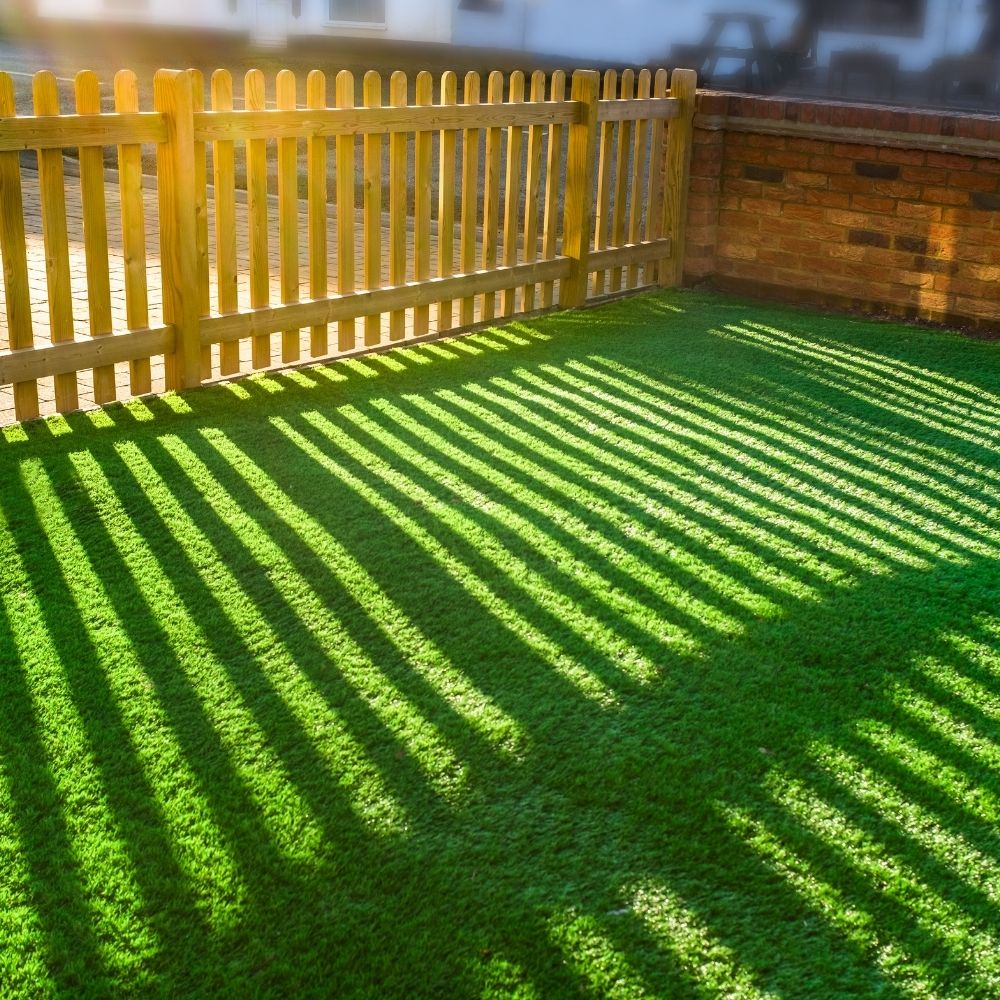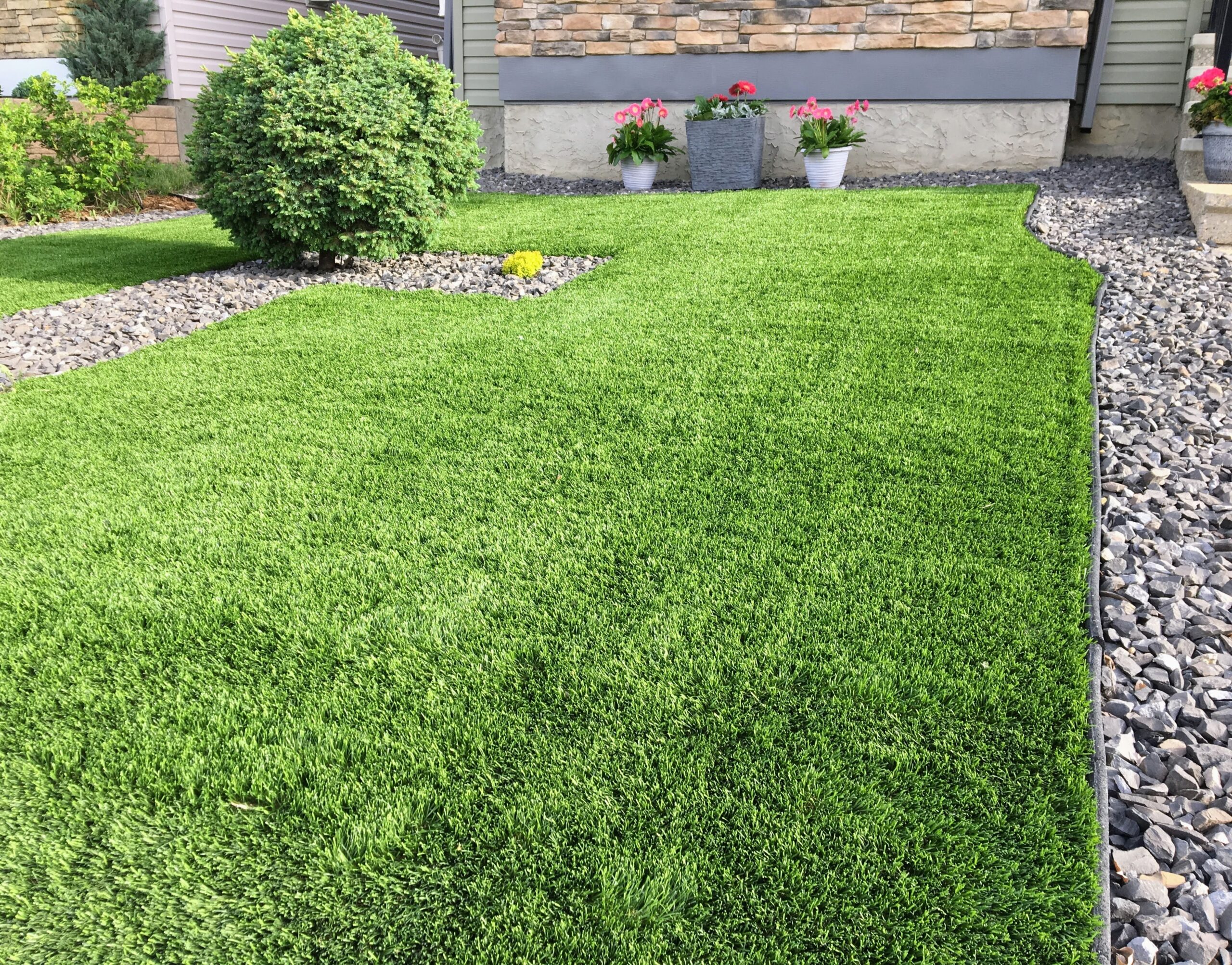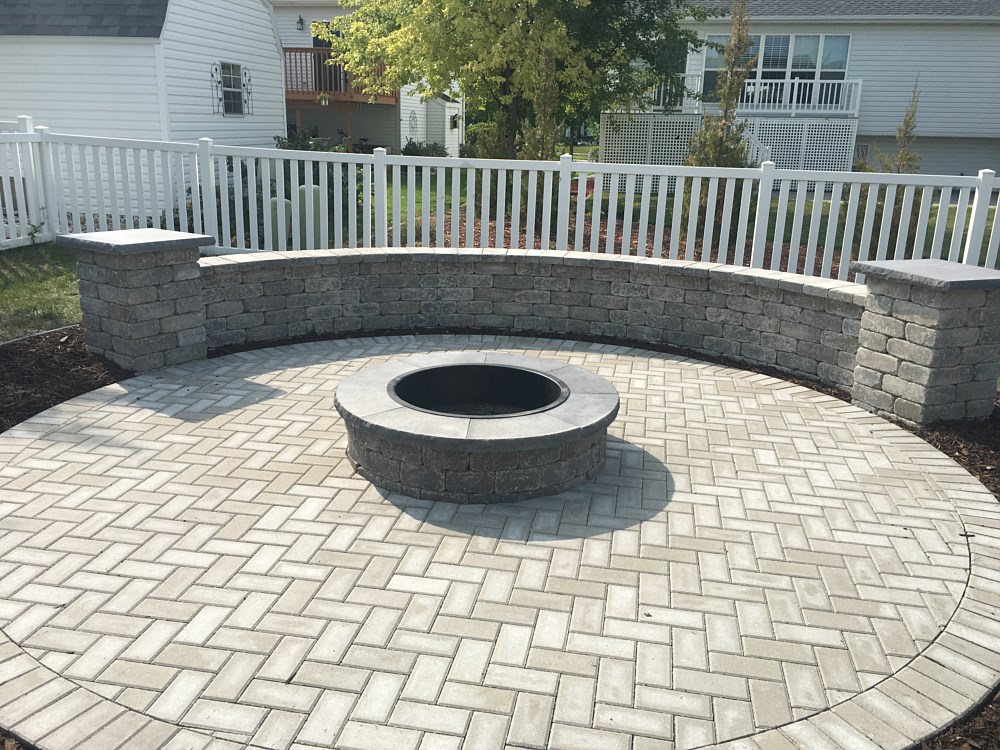Nylon artificial turf for residential and commercial landscape design projects
Artificial turf and grass are often associated with West Coast landscape design due to its warm, Mediterranean climate. However, did you know that artificial turf is perfectly suited for the cooler, and at times relentless New England climate?
More and more Massachusetts homeowners are turning to artificial turf as an alternative to traditional grass lawns. The reason? Turf is sustainable, eco-friendly, and increases the value of your home.
If you are worried about water usage during the New England drought, artificial turf eliminates the need to water your lawn entirely.
Additionally, artificial grass requires little to no winterization maintenance during the winter months. In fact, the way you care for artificial grass is the same way you would care for real grass (no irrigation needed).
There are many types of artificial turf options for homeowners to choose from, but which one is right for your project?
Types of Artificial Turf
1. Nylon Artificial Grass
Nylon Artificial Grass is durable and commonly recognized as a strong and sustainable material for artificial turf. With that durability and sustainability, however, comes a higher price tag, making it a less-likely option for complete front or backyard landscape design.
Instead, Nylon Artificial Grass is best used for smaller areas within your landscape design, like a backyard putting green or patio area.
2. Polyethylene Artificial Turf
The most commonly used material for artificial turf, polyethylene is a comparatively budget-friendly option and most frequently used in residential and commercial landscape design, as well as indoor soccer fields and other athletic stadiums.
Additionally, homeowners in Massachusetts and around the world agree that Polyethylene artificial grass better replicates real grass lawns, softer and natural to the touch. Like Nylon, Polyethylene is durable and will hold up nicely during a New England winter.
3. Polypropylene Artificial Turf
Polypropylene artificial turf is the most affordable option for homeowners in Massachusetts, but with that lower price tag comes a less durable product.
If you do choose polypropylene for your residential or commercial landscape design, try to use it only in smaller spaces, like a putting green. This material does not hold up well during the winter months and does not stand up well to frequent foot traffic or outdoor playtime.
4. Pet-Friendly Artificial Grass
If you’ve been to an airport lately, you’ve probably noticed pet relief areas inside airport terminals. These pet relief areas include a small patch of artificial turf, great for drainage, keeping the surface clean and dry, and are durable enough for even the most playful and energetic pets!
Learn more about pet-friendly artificial turf your dog will love!
What Type of Artificial Turf is Right for My Landscape Design Renovation?
Now that we’ve covered the different types of artificial turf, it’s now time to decide which is best for your landscape design in Massachusetts.
For most landscape design projects, Polyethylene is the best option. It is durable, more affordable than nylon, and stands up well against harsh New England winters and heavy foot traffic. With Polyethylene artificial grass, homeowners can feel confident that their artificial turf installation will stand the test of time (and increase your property value).
If you’re a homeowner looking to install a small backyard putting green or install artificial grass in small sections of your yard, Nylon is a perfectly good, albeit expensive option that comes with all the perks of Polyethylene.
To learn more about artificial turf installation, visit the JM Mento Landscape Design Services page and schedule a free consultation today!
Follow JM Mento Landscape Design on Facebook, Twitter, Instagram, Pinterest, and Houzz for project details and updates!






0 Comments